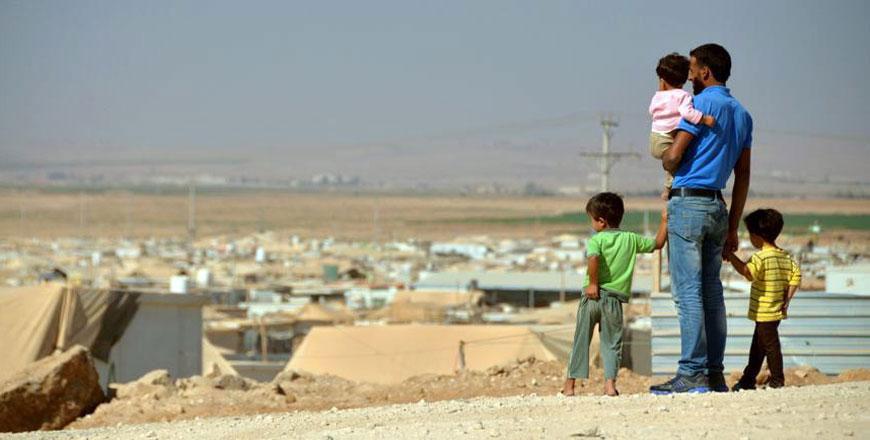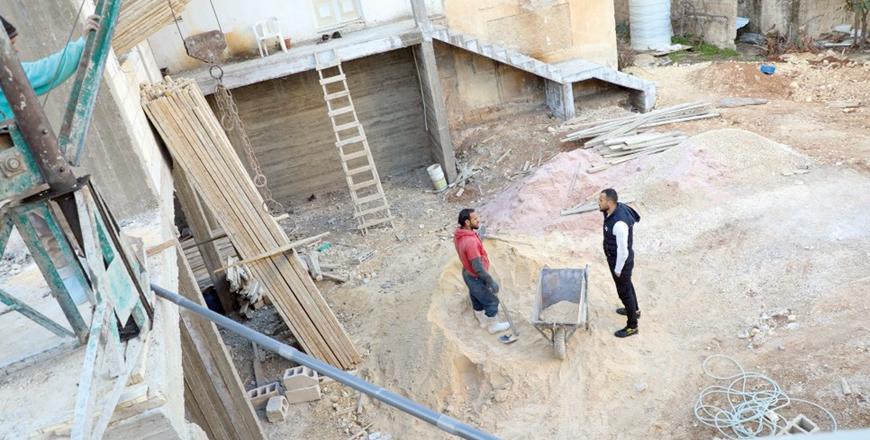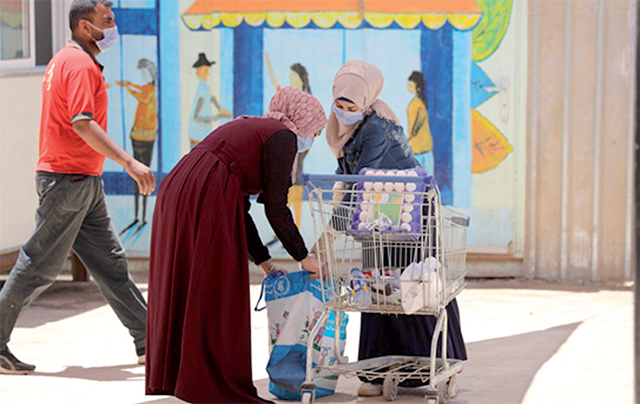You are here
Move towards sustainable support for Syrian refugees ‘imperative’
By Anna Rice - Feb 13,2022 - Last updated at Feb 13,2022

Syrian refugees are seen at the Zaatari refugee camp in Mafraq Governorate, some 80km north of Amman (JT file photo)
AMMAN — The Jordan Response Plan (JRP) received 30 per cent of its required funding last year, 20 per cent less than pre-COVID funding in 2019 — a decrease that was “not unexpected”, according to UNHCR representative to Jordan Dominik Bartsch.
Bartsch said that there are “two principal streams of donor support” for refugee aid: “One is humanitarian funding; the other is development-based”.
“We often see a decline in humanitarian funding over several years,” he told The Jordan Times.
He noted that humanitarian funding is never sustained for a long period of time as it is intended to address immediate emergency needs.
This trend can be seen in Germany’s donations, with financial assistance being prioritised for long-term aid.
In the past year, the country donated 135 million euros to humanitarian assistance and 484 million euros for development assistance, making Germany the second biggest donor to Jordan.
According to Germany’s Ambassador to Jordan Bernhard Kampmann, Germany’s intention is to “support those most in need while laying the groundwork for more sustainable, stable and resilient structures in the future”.
It is “imperative” to move from emergency aid towards sustainable longer-term solutions, as “return perspectives remain bleak for the foreseeable future”, Kampmann said.
He emphasised, however, that “it would be premature to say that we are seeing the end of humanitarian aid in Jordan”.
“Instead, we believe that Jordan can be a forerunner in linking humanitarian and development approaches,” he added.
Bartsch said that “this is the time when the priorities in the refugee response should evolve”.
However, like Kampmann, he highlighted that a move from humanitarian aid to long-term support is expected to be a gradual process rather than a sudden shift.
Conversations around this process are currently taking place according to Bartsch. “It is better to work towards this change in a manner that is careful and negotiated rather than being quickly driven to such decisions because of a decrease in donor funding in the future,” he said.
Both Bartsch and Kampmann agreed that self-reliance is an aim for the next stage of the refugee support process.
It’s about providing opportunities, Bartsch said. “For example, refugees in camps can do much more to make a direct contribution to how their affairs are being run,” he continued.
Kampmann told The Jordan Times that “it is necessary to reduce dependency on aid and increase opportunities for refugees to earn their own living through decent work and thus actively contribute to the economy of their host country.”
Progress regarding economic independence can be seen in recent work permit figures. In 2021, a record 62,000 work permits were issued to Syrians, according to figures published by the government and UNHCR. “This is the highest annual number since work permits for Syrian refugees were introduced,” according to a UNHCR statement.
Kampmann acknowledged the impact of a move towards sustainable support on the Jordanian government.
“The challenges ahead also increase pressure for general political and economic reform in Jordan,” he said.
“We believe that it is a shared responsibility of the international community to assist people that were displaced by conflict and the communities that receive them,” he added.
Bartsch also addressed the impacts of hosting Syrian refugees in Jordan. “We shouldn’t ever take the Jordanian hospitality for granted,” he said, adding that one of the JRP’s aims for the progression of Syrian refugee aid in Jordan is to increase “economic opportunities for both refugees and Jordanians.”
“Jordan is a country that continues to carry a significant burden and deserves not only support that is well calibrated, but profound respect for its management of refugee aid,” he concluded.
Related Articles
AMMAN — With an additional 20.4 million euros to UNHCR, the UN Refugee Agency, made available through a special-purpose contribution, German
AMMAN — UNHCR, the UN Refugee Agency, on Tuesday welcomed the progress achieved in Jordan in including Syrian refugees in the country’s labo
AMMAN — To help maintain life-saving cash assistance for refugees in Jordan, the German Federal Foreign Office has committed an additional 1


















